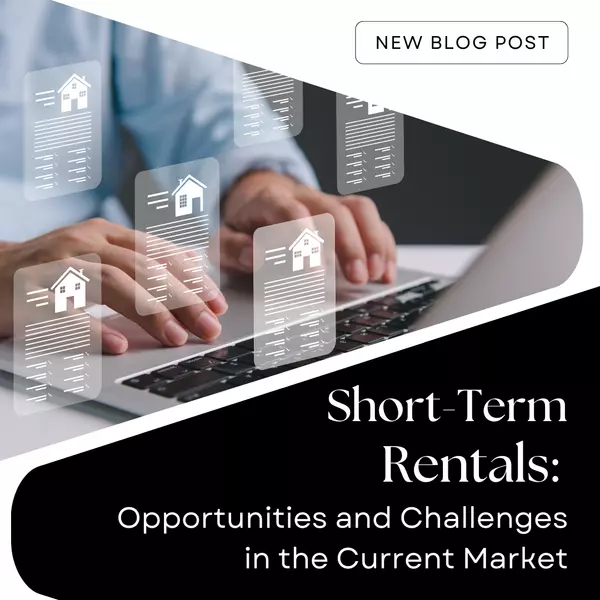Renting vs. Buying in 2024: Making the Right Choice in a Dynamic Market

Renting vs. Buying in 2024: Making the Right Choice in a Dynamic Market
As we move further into 2024, the real estate market continues to evolve, influenced by economic conditions, interest rates, and shifting lifestyle preferences. One of the most significant decisions individuals face in this dynamic market is whether to rent or buy a home. Each option has its pros and cons, and the right choice depends on various factors, including financial stability, long-term goals, and personal circumstances. This blog explores the key considerations for renting versus buying in 2024 to help you make an informed decision.
Financial Considerations
Renting:
Renting a home often requires a lower upfront financial commitment compared to buying. Typically, renters need to cover a security deposit, the first month's rent, and potentially a broker's fee. This makes renting an attractive option for those who may not have substantial savings or are looking to avoid the large down payment required for buying a home.
Monthly rent payments can be predictable and easier to budget for, although it's essential to consider potential rent increases, especially in competitive markets. Renting also eliminates the financial responsibilities associated with home maintenance, repairs, property taxes, and homeowner's insurance.
Buying:
Buying a home, on the other hand, involves significant upfront costs, including a down payment, closing costs, and fees for inspections and appraisals. However, homeownership can be a valuable long-term investment. As you pay down your mortgage, you build equity in your home, which can be a powerful financial asset. Additionally, homeowners may benefit from potential property value appreciation over time.
Homeownership also comes with tax benefits, such as deductions for mortgage interest and property taxes. However, buyers must be prepared for ongoing expenses like maintenance, repairs, homeowners' association fees, and higher insurance premiums.
Market Conditions
Renting:
In 2024, rental markets in many urban areas remain competitive, with high demand driving up rental prices. However, renting offers flexibility, making it easier to relocate for job opportunities or lifestyle changes without the commitment of owning property. This can be particularly advantageous in a fluctuating job market or if you anticipate significant life changes in the near future.
Buying:
The housing market in 2024 is experiencing a mix of stability and volatility. While interest rates have seen fluctuations, they remain relatively low compared to historical averages, making mortgages more affordable for many buyers. However, housing inventory in some areas remains tight, leading to competitive bidding and higher home prices.
For those considering buying, it's crucial to stay informed about local market conditions and trends. Working with a knowledgeable real estate agent can provide insights into market dynamics and help you make a strategic decision.
Lifestyle and Long-Term Goals
Renting:
Renting offers greater flexibility and freedom from long-term commitments. This can be ideal for individuals who value mobility, are exploring different neighborhoods, or prefer the convenience of a landlord handling maintenance and repairs. Renting also allows you to live in desirable areas that might be unaffordable to buy into.
Buying:
Homeownership aligns well with long-term stability and the desire to establish roots in a community. Owning a home provides the freedom to customize and renovate your living space to suit your preferences. It can also foster a sense of pride and accomplishment.
For families, buying a home in a good school district can provide educational benefits for children. Additionally, homeownership can serve as a forced savings plan, as mortgage payments contribute to building equity.
Economic Factors
Renting:
Economic uncertainty can make renting a more attractive option, as it avoids the risks associated with home value depreciation. In times of economic downturn, renters are not tied to a depreciating asset and can relocate more easily if needed.
Buying:
Conversely, in a stable or growing economy, buying a home can be a wise financial decision. Real estate often appreciates over time, providing a hedge against inflation and a potential increase in net worth. However, buyers should be mindful of economic indicators and consider the potential risks of purchasing in a volatile market.
Conclusion
The decision to rent or buy a home in 2024 is multifaceted, requiring careful consideration of financial, market, lifestyle, and economic factors. Renting offers flexibility and lower upfront costs, making it suitable for those who prioritize mobility and lower immediate financial commitment. On the other hand, buying a home can be a valuable long-term investment, providing stability, equity growth, and potential tax benefits.
Ultimately, the right choice depends on your individual circumstances, long-term goals, and current market conditions. Consulting with real estate professionals, financial advisors, and conducting thorough research can help you navigate the complexities of the 2024 real estate market and make the best decision for your future. Whether you choose to rent or buy, understanding the pros and cons of each option will empower you to make a choice that aligns with your lifestyle and financial aspirations.
Recent Posts










GET MORE INFORMATION


